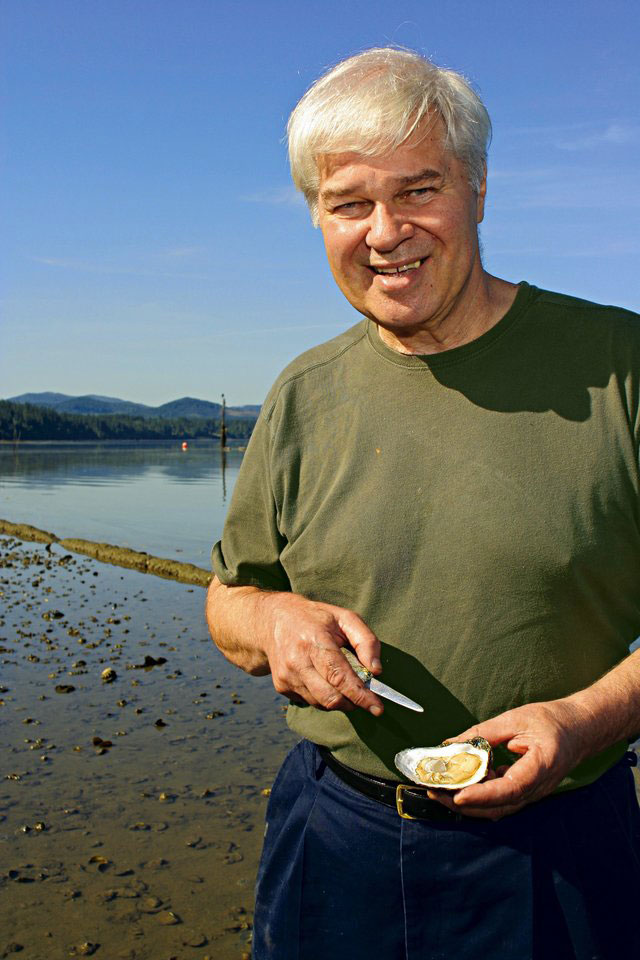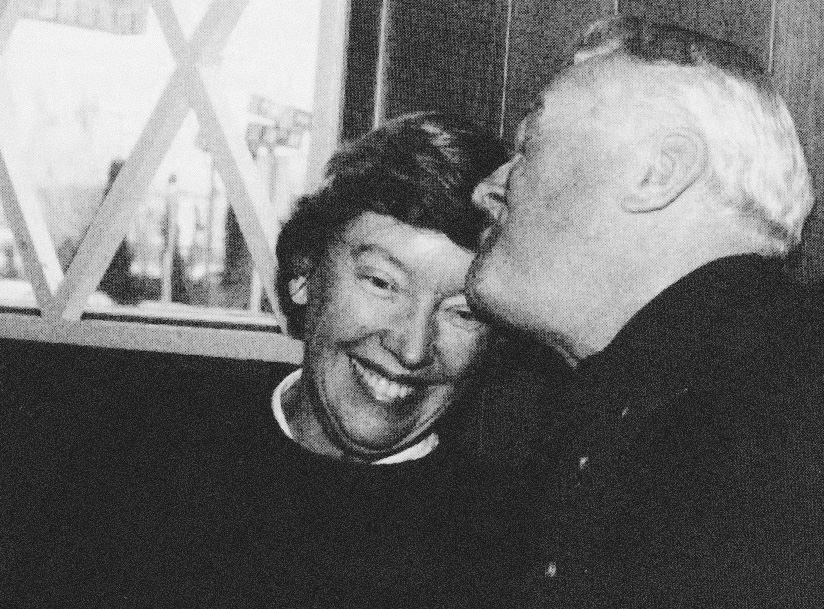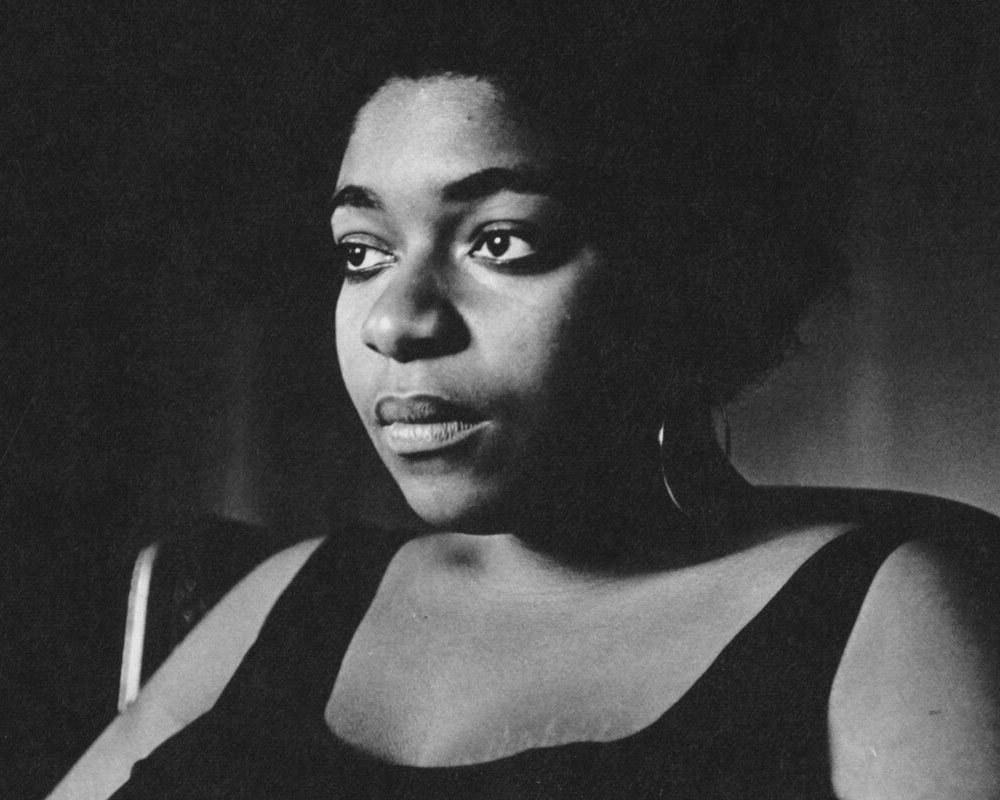The Fish Missionary
Jon Rowley ’69

Jon Rowley’s governing passion was a matter of taste. He awakened America’s gastronomical pleasures by championing fresh presentations of Copper River salmon and Puget Sound oysters. Though he was never a household name, his insights were celebrated by fishermen, growers, food purveyors, and writers. Saveur magazine deemed him “The Disciple of Flavor.” Julia Child called him “The Fish Missionary.” (For his wedding, she sent him a bunch of perfect bananas.) Another writer described Jon as a food astronaut who went where no one had gone before in a quest to make the commonplace extraordinary.
Born in Astoria, Oregon, Jon was raised in Valdez, Alaska, and Warrenton, Oregon. He possessed an epicurean sense of taste—even as a child he could detect notes of briar in his grandmother’s fresh-picked berry juice. His parents were both alcoholic, and to escape the boozy dramas of the family home, as a boy Jon began taking long walks and camping next to the ocean. He would take along a skillet and some butter, salt, and pepper, and forage in the jetties and tide pools to make meals of the fruits de mer (fruits of the sea). Enchanted by Mark Twain’s accounts of Huck Finn’s Mississippi River adventures, he dreamed of being a fisherman and drank in the stories of the fishermen that populated the docks near his home. Through his high school years, he made money working as a deckhand aboard Columbia River charter boats and with a fish-cleaning concession on the docks, gutting fish for a quarter apiece.
After high school, he headed to Europe and began assimilating the names of French oysters and the numbering system by which they’re sized. He traveled through Europe to see how their fisheries worked and then, and after spending time in New England fishing communities, he started at Reed. By then a confirmed Francophile, he majored in French for his three years on campus.
Prof. Samuel Danon [French 1962–2000] remembered that Jon sought and saw perfection in all things. Years after their time together at Reed, Jon called him from Seattle to say he had bought a boat.
“What kind of a boat?” Danon asked, and Jon answered, “It’s a fishing boat, made out of wood, of course. Who could love a boat made of plastic?”
In the late ’60s, Jon visited Paris, and Prof.Danon treated him to lunch at Le Dôme, a restaurant renowned for fish and seafood. Jon maintained that his interest in and appreciation of oysters started on that day.
“When you saw Jon hold a piece of fruit, with so much respect and admiration, you had the impression that he was holding the Holy Grail,” Danon said. “He was a most kind and faithful friend, and professionally, as a pioneer, full of respect for the gifts of earth and sea.”
After dropping out of Reed, Jon bought a small troller boat and headed to Alaska, where for 10 years he fished, taking winters off to travel through Europe. He was consumed by why food in Europe tasted so much better than the food back in the United States. He returned to Seattle in 1979 with a mission: using everything he had learned to purvey quality seafood.
If one individual is responsible for the reputation of Copper River king as the ne plus ultra of salmon, it is Jon. But prior to his reinvention of it in the early ’80s, few had ever tasted other than the canned variety. After fishing for two or three days, fishermen would offload their catch to tenders, who took it to coastal canneries. Jon met some fishermen from Alaska’s Copper River at the 1983 Fish Expo and convinced them to properly handle the fish on the boat—bleeding, cleaning, and icing the fish in its pristine state. Jon had 300 pounds of Copper River king, harvested as he had suggested, flown to Seattle and sold them to restaurants he had schmoozed. Customers couldn’t get enough.
For his next act, he took on Olympia oysters, the only oyster native to the Pacific Northwest. Like Copper River salmon, for years Olympia oysters had all ended up in jars, but Jon proved that they were a delicacy on the half shell. He served up more than 1,200 fresh Washington oysters for Reed’s 2006 reunion, and shucked dozens of Totten Inlet oysters for the 2012 Working Weekend.
In addition to the line-caught fish, Jon began selling crab, abalone, and prawns directly to restaurants. But the lag between paying the fishermen in cash and receiving payment from the restaurants sank the venture. Retooling, he became a consultant. In addition to being a James Beard Award winner, he received Food Arts Silver Spoon Award and Seattle Weekly’s Angelo Pellegrini Award.
In a profile for Pacific NW, the Seattle Times’ Sunday magazine, Peter Lewis wrote: “You’re eating better fish because of Rowley, plumper oysters, riper fruit. And beyond the quality of foodstuffs, coastal estuaries, particularly in the Northwest, are cleaner as a result of his efforts.”
Jon is survived by his daughters, Megan and Caitlin; his brother, Gary Raymond; and admirers who will think of him every time they slurp an oyster.
Appeared in Reed magazine: March 2018
comments powered by DisqusFrom the Archives: The Lives they Led

Frederick Dushin ’86
Frederick, an architect and software developer, embodied the intellectually adventurous spirit of Reed throughout his life.

William Haden
As acting president of Reed from 1991 to 1992, William “Bill” R. Haden worked to strengthen Reed’s finances and improve alumni relations.

Nancy Horton Bragdon
Reed’s First Lady Whose Warmth and Leadership Were Invaluable During a Turbulent Time





![Photo of Prof. Marvin Levich [philosophy 1953–94]](https://www.reed.edu/reed-magazine/in-memoriam/assets/images/2022/LTL-levich1.jpg)
![Photo of President Paul E. Bragdon [1971–88]](https://www.reed.edu/reed-magazine/in-memoriam/assets/images/2020/Bragdon.jpg)
![Photo of Prof. Edward Barton Segel [history 1973–2011]](https://www.reed.edu/reed-magazine/in-memoriam/assets/images/2020/Segel.jpg)








































































